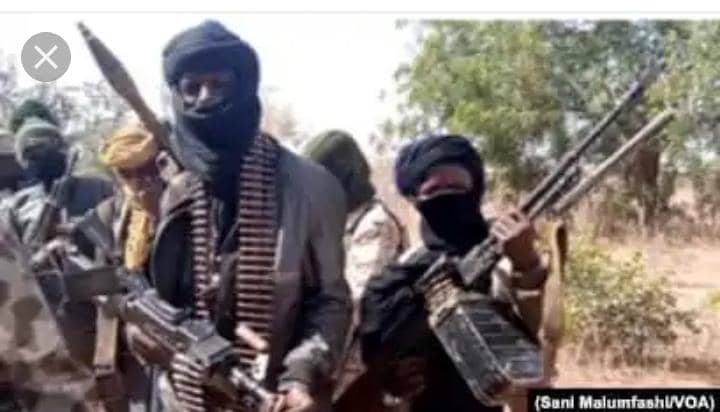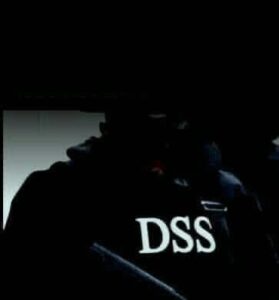
BY SHEHU USMAN BELLO
For over two decades now, Nigeria and Nigerians have plunged into an array of security challenges characterized by Boko Haram insurgents in the North-East, indigenous people of Biafra (IPOB) freedom agitations in the South-East led by Nmandi Kanu, Yoruba Nation agitators spearheaded by Sunday Adeyemi (a.k.a Sunday Igboho) in the South-West and armed banditry and kidnapping in the remaining parts of the country.
Boko Haram insurgents have taken control of some local government areas in the country and the fight to regain them on the part of government security forces has continued. The insurgent on their own part, have, continued to strategize and re-strategies with the view to retaking control of such areas where the government has regained control.
Nigerians and their visitors live in fear that brutalizes and traumatizes them emotionally wherever they are including their homes because their safety is not guaranteed. The economy is badly affected by the insecurity that has become a new normal in the country. Many multinational companies business outfits have relocated to neighbouring countries like Ghana. A blame game is being played in the country. The citizens blame the insecurity to incompetency or lack of will to tackle the problem head on by the government. The government on the other hand blames the citizens of frustrating the fight against insecurity by way of, for example, being informants to the perpetrators of insecurity aiding and abetting them, opposition and embarrassment of the government subversion of the government using external means (Foreign Interference) etc.
Whatever it is, it is high time we teamed as a people who have no other country to lay claim to, other than Nigeria and do the needful in order to rid the country of insecurity.
In my own view, a combination of the following factors, among others are responsible for the failure of the national security operations as regards the management and control of the prevailing security situation in the country at the moment
Unemployment and poverty among the most productive component of the society (the youth. Unemployment and its resultant economic pressure and loss of means of livelihoods originating from climate change, violent conflict and mass migration further compounded peace and security issues in Nigeria generally and North-Eastern and North-Western parts of the country particularly. These have resulted to increasing desire among the citizens to collaborate with criminal elements for the purposes of survival, sustainability and protection as government at all levels appears to have no defined approach to address the complexities associated with economic and security challenges. Until government is able to adequately address this factor, the fight against insecurity will remain elusive as the citizens will continue to sabotage government efforts for their personal economic and security gains. Government must make rigorous and conscious efforts to reverse the mindset of the citizens, rebuild their confidence that it has the will and capability to protect them from all kinds of threats posed by Bandits Terrorists, separatist and all other forms of criminal elements responsible for our present security travails.
Sustained empowerment programmes devoid of corruption must be introduced to relieve citizens of existing economic pressure. These must be local government(s) based projects for ease of monitoring and evaluation to ensure its success.
Availability, marketing and widespread use of hard drugs among the youth. The availability and unchecked use of hard drugs has multiple implications on our national security ranging from increased incidences of violent crimes to providing unnecessary and unrealistic courage to its users in our communities and to the hard core Bandits and insurgents resulting in more daring attacks on law-abiding citizens, loss of lives and wanton destruction of private and public properties leading to reverse development and economic down-turns at both macro and micro levels. This, if left unchecked, will no doubt and in no time accelerate national breakdown.
Government agencies such as the National Drug Law Enforcement Agency (NDLEA) and the police must strengthen their operations and take advantage of their intelligence structures and those of similar agencies to identify and cut off supply chains in the society with the aim of stamping out drug-induced influence on criminal elements and their attendant nefarious activities. The Nigerian society is and is still being saturated with small arms and light weapons in some cases and locations, even the unimaginable presence of and use of hard military wares has been established.
Proliferation of small arms and light weapons. Apart from the foreign sophisticated arms in circulation, local fabrication of high caliber riffles is on-going in a 2 way circulation order among criminal elements on one side and to citizens on the other. Citizens are acquiring arms in the name of self-defence or felt need and self-help bases so to say. However, uncontrolled arms within the community members at the moment are in no context a prelude to another fresh security challenge when the current situation is eventually addressed.
The Department of State Security Service (DSS), customs, immigration and the police must do the needful in dealing with these challenges. Stiffer legislations on arms ownership and use must be introduced and intensified immediately and enforcement muBBst be total without any form of segregation.
Complacency of state actors and their agents and political appointees involved in the fight against insecurity in the country are also a course for concern. The political will to confront the situation head-on is either short of expectations or completely abandoned. The security top brass are either benefitting or serving a different cause outside the national objectives of the fight against insecurity generally. Field commanders seem to be either confused, overwhelmed or do not just care about the state of affairs. Operatives seem psychologically defeated or have adopted new and personal objectives for the operations. Supervision, monitoring and evaluation of events at the theatre of operations are near missing.
The security decision-makers on the top of the hierarchy must properly define their objectives, tasking of field commanders must be broken into specific and general interest and objectives for each operation, kingpin and major criminal actors responsible for recruitment supplies, information acquisition and management must be traced and rooted out without further delay. Erring commanders and operatives must be sanctioned for every failure recorded, objective attainment must be a top priority and maximized. Security agencies and their agents should, by all means, avoid being used by the elites to maliciously indict innocent citizens. They should remain focused on their objectives and embrace the fear of God in the pursuit of their objectives.
Internal and foreign conspiracies aimed at thwarting the security efforts in the country for self-centered interest. For whatever interest, compromising the security and safety of citizens must be avoided. The security and safety of citizens must be the watch word of everyone saddled with the responsibility of governance and security of the citizens. Citizens who, in whatever way aid and abet criminal elements and their activities should, in the interest of national security desist from doing so and embrace the spirit of national patriotism. Government should, as a matter of necessity and urgency should come up with clear legislations to deal with anyone found wanting in this regard.
Intelligence failure. The national intelligence community must rework its architecture, establish a grass root intelligence structure, and introduce a central national intelligence hub that will integrate the DSS, FIIB, DMI, NIA and all other intelligence components. This will centralize the national intelligence activities, reduce the agencies’ complexity on information gathering, sharing and utilization. Information need must be defined aggressively, pursued, collected, collated, analyzed, processed, promptly disseminated accordingly and maximally utilized. Human and technical intelligence remains central to the success of the operations and thus, must be perfected and strategically deployed.
Outdated strategic and tactical operational methods. Most or all the operational targets have become so advanced in their activities and are familiar with our over used operational approaches therefore, empirical knowledge based review of both tactical and strategic operational issues are deeply required. A close collaboration of this obsoleteness is the police divisional headquarters which is the closest to the citizens and by implication, the first respondent to the violent criminal events but it is a no match to such events going by its current composition.
Therefore, the division must be reconstituted and equipped accordingly to be combat-fit and ready to withstand and respond with equal or better capacity and will not have to rely on or wait for superior organizations before reacting to distress situations which often stand as an advantage to bandits and insurgents to always allowing them to have a field day during their operations.
Poor inter-agency collaboration and co-ordination. It is obvious that the armed forces are largely operating independently. This gives room for more complacent conducts However, where different agencies come together to pursue a common security objective, a natural supervisory mechanism fall in place as hardly will the agencies behave in the same way. It brings in a healthy competition among agencies in the pursuit of objectives and extraordinary conducts are also minimized. Consequently, all the agencies continue strive to maintain standard and attempt to preserve their self-respect. Excesses come under natural control while different experiences, tactics and expertise come to play.
In such situations, various resources are readily available, centrally controlled and can be deployed as deemed necessary without command and bureaucratic bottlenecks, Co-ordination is simplified and objective achievements are maximized. All the components of the armed forces must unite, co-operate and co-ordinate effectively to ensure efficiency and success of their operations. The state, regional and national resources must be harnessed, harmonized and strategically deployed to pave way uniformly executed successful security operations.
Funding and expenditure must be transparent and judiciously accounted for. Periodic forensic audit of the financial transactions of the forces must be introduced and actively sustained while corrupt practices and their perpetrators should be ruthlessly subjected to punitive measures in accordance with the provisions of the law.
Resource Constraint
Human, material and financial resources required for the successful prosecution of the fight against insecurity are either insufficient or completely absent, which place troops at a serious disadvantage resulting in high number of failed missions and prolonged operational time frame. These tend to deflect the fighting morale of the forces, lower their confidence and perpetually place the criminal elements at a vantage position.
Human resources must be refilled even if it means recalling the ex-servicemen of the armed forces to constitute the required battalions. This is inevitable, we must identify all state and non-state resource, harmonize and integrate them to build the required fighting capability to out rightly deal with the situation without further delay. Human intelligence must be strengthen, pended and promptly deployed. Technical intelligence should be pushed to global speed and adequately utilized. Operational hardware needs urgent update as much as possible and the armed forces operational logistics most be reviewed upward, Operatives’ rights and privileges and protection be guaranteed immediately. This will boost the forces morale and keep the fighting spirit alive for the quick realization of objectives to be less stressful, risky and much easier.
Inter-Agency Cooperation, intelligence sharing and synergy
Inter-agency co-operation, intelligence gathering, sharing and synergy will greatly add to the success of the ongoing operation and thus recommend that the establishment acts of the Nigerian Security and Civil Defense Corps be reviewed to enable them actively participate in combating violent events in the Country. While the possibility of the Federal Road Safety Corps to bear arms be taken into consideration with the view to integrating them into the pursuit of safety and stability in the country and further addressing the manpower deficit being grappled with in the Nigerian armed forces.
Legal and legislative bottlenecks should be quickly identified and addressed to facilitate prosecution of cases and persons involved. Nigeria and Nigerians must all wake up and unite against the perpetual and ever-increasing security challenges facing the country without further delay.
Our neighbouring nations must be purposely addressed and carried along to manage and mitigate cross boarder event while international opportunities and assistance are quickly explored and utilized to permanently succeed in tackling the prevailing security situation.
All security agencies must unite in purpose and objectives and should shun all unnecessary competitions that are detrimental to national interest, safety and security of citizens.
In conclusion, it can be seen from the fore-going that the Nigerian national security policy is bedeviled by series of shortcomings which need to be urgently corrected if we are really interested in surmounting the prevailing security challenges occasioned by the factors. Measures suggested here, among others, if faithfully and patriotically implemented will go a long way in greatly ameliorating them and once again putting the country on the tracks of progress and development as no meaningful progress and development can be made under an atmosphere of unchallenged national insecurity.
SHEHU USMAN BELLO, Mdrm, Pgdrm, B.ed, Hdgc, Dcrm, Daecd, Fiiss, Fidmss, Nfacc, Fcidmss


